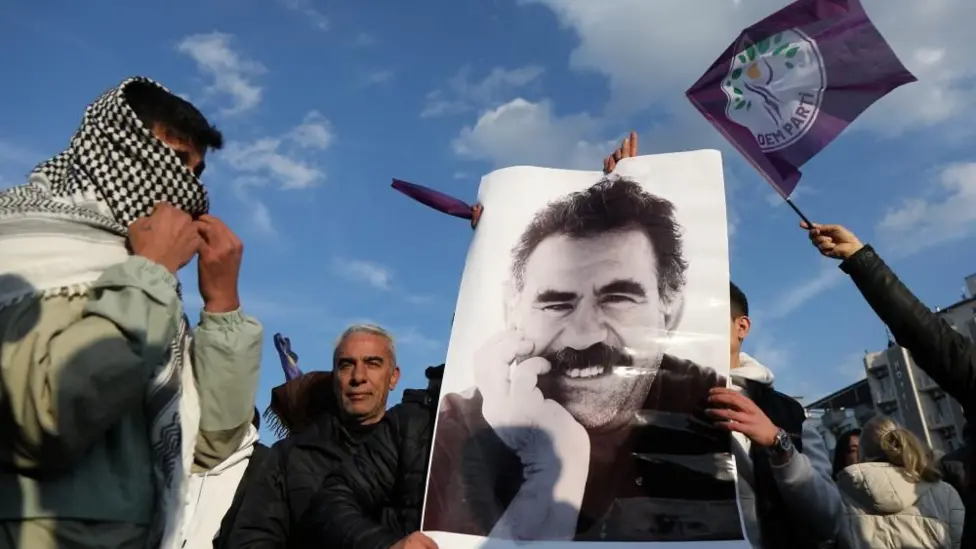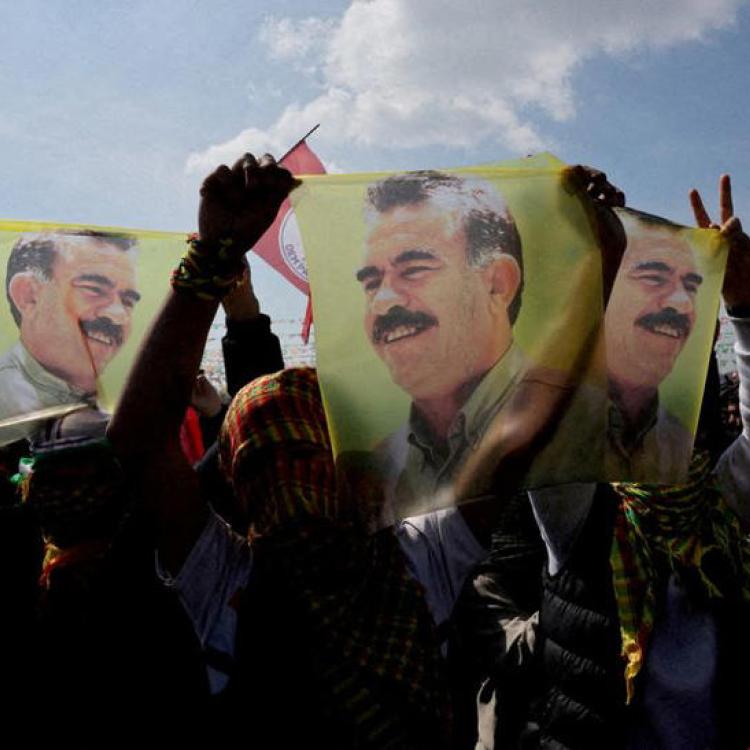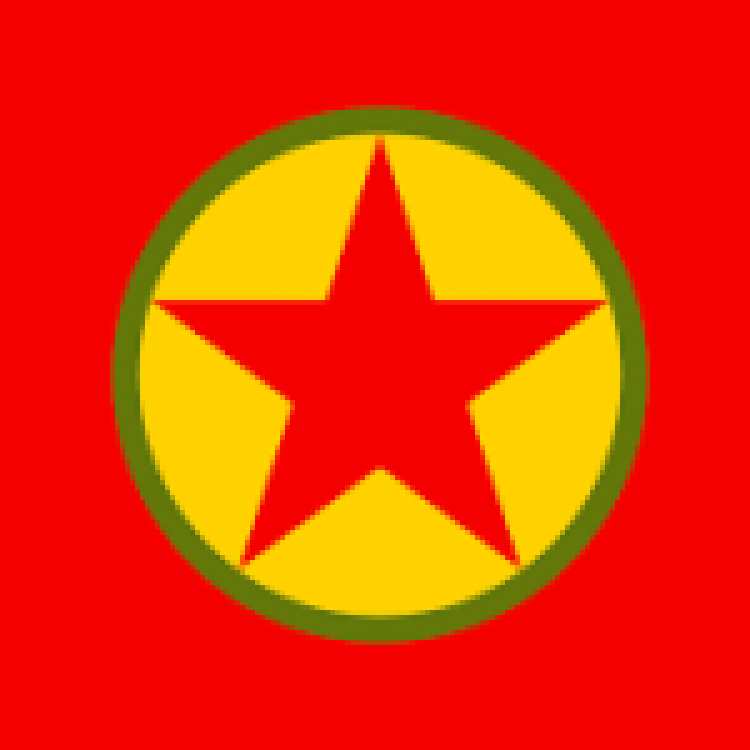
The Kurdish armed group the PKK has declared a ceasefire following calls from its imprisoned leader and founder, Abdullah Öcalan last month.
"In order to pave the way for the implementation of leader Apo's call for peace and democratic society, we are declaring a ceasefire effective from today," the executive committee of the Kurdistan Workers’ party (PKK) said in a statement. "None of our forces will take armed action unless attacked."
Earlier last month, Abdullah Öcalan had formally declared the disarmament of his PKK Kurdish militant group. Reading from a letter written by Öcalan from his prison cell south of Istanbul, Turkey’s main pro-Kurdish political party verbalised the leader and founding member of the Kurdistan Workers’ party's (PKK) message to “lay down their arms” and “dissolve itself”.
The PKK executive committee have agreed to “fully comply with and implement the requirements of the call on our part”. They also called for assurances to set Öcalan free from his life-sentence so that he could “personally direct” a meeting that would begin the laying down of arms. In their own words, “a suitable security environment must be created” the statement said.
The conflict between the Turkish state and the PKK has been ongoing for 40 years, as Kurds sought an independent state of Kurdistan. Progress for a ceasefire collapsed in 2015 leading to prolonged attacks on the group using drones and airstrikes that targeted fighters based in the mountains of northern Iraq. Since then, reports from the International Crisis Group claim over 7,000 people have been killed between the two sides – almost 60% of which account for PKK forces and just under 20% numbering Turkish security forces.
The ceasefire comes at a pivotal time for Turkey’s President Erdogan who remains reluctant to step down from power beyond 2028 despite being constitutionally obliged to do so.
Erdogan warned his government would “always keep our iron fist ready in case the hand we extend is left in the air or bitten”.
“We will continue our ongoing [military] operations, if necessary, until we eliminate the last terrorist without leaving a single stone on top of another, without leaving a single head on his shoulder,” he added.
The PKK is designated as a terrorist group by Turkey, the United States and the European Union.
Supporters of Turkey’s most influential Pro-Kurdish political party, Peoples’ Equality and Democracy (DEM), greeted Öcalan’s announcement with much-anticipated celebrations. A delegation from the DEM party recently visited the Kurdistan region and met with senior Kurdish officials to advance peace efforts between Ankara and the PKK.
In his address Öcalan highlighted the changing political circumstances across the Turkish region that effectively brings the PKK, in its militant condition, to the “end of its life cycle”. Further on his statement, he added “In the 1990s, the collapse of real-socialism due to internal reasons and the dissolution of identity denial in the country, along with developments in freedom of expression, led to PKK's loss of meaning and excessive repetition.”
However, the reaction across PKK’s numerous factions still appears uncertain. The co-chair of a PKK ally in Syria, the Democratic Union party (PYD), told Al Arabiya that disarmament must be accompanied by the group being “allowed to work politically”.
The Syrian Democratic Forces (SDF) who have links with the PKK and control significant swathes of north-eastern Syria have distanced themselves from Öcalan's message. The SDF commander-in-chief, Mazloum Abdi, told a press conference that “the announcement for PKK to dissolve and lay down its arms, to be clear this only concerns the PKK and is nothing related to us here in Syria”. Instead, their focus remains on negotiating the control of territories in the region with the new power in Syria, Hay'at Tahrir al-Sham (HTS), as well as addressing the SDF’s potential role in a nationwide military force.
Read more from The Guardian here and Al Jazeera here.


